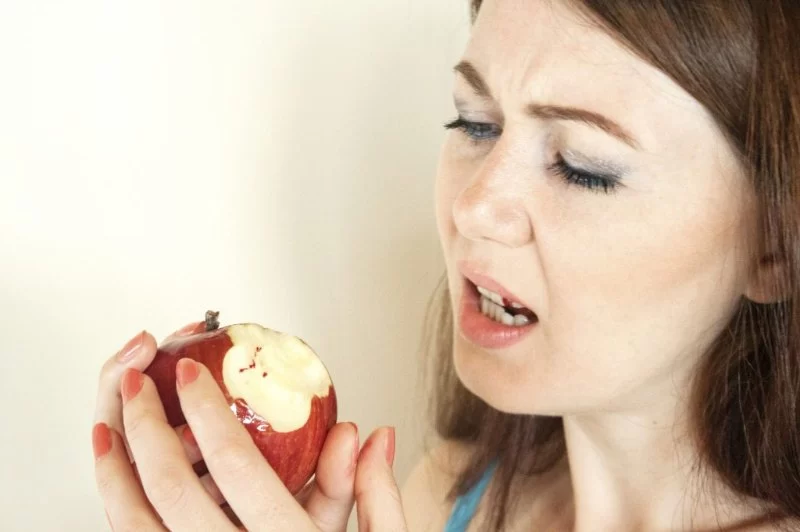
- 01-vitamin-c-why-your-gums-depend-on-it
- 02-how-vitamin-c-strengthens-gum-tissues-at-the-cellular-level
- 03-signs-your-gums-may-be-suffering-from-vitamin-c-deficiency
- 04-the-connection-between-vitamin-c-and-periodontal-disease
- 05-how-to-boost-vitamin-c-intake-for-healthier-gums
- 06-real-life-lessons-in-preventing-gum-damage-with-vitamin-c
- 07-build-your-daily-habit-for-stronger-gums
1. Vitamin C: Why Your Gums Depend on It
The importance of vitamin C for gums cannot be overstated. Ascorbic acid, the scientific name for vitamin C, plays a foundational role in maintaining healthy gum tissues and supporting collagen production. Without it, your gums are left defenseless against inflammation, bleeding, and even infection.
Gums aren’t just a cosmetic part of your smile—they are the supportive foundation that anchors your teeth. When they become weak, recede, or inflamed, your entire oral health is at risk. That’s why dental professionals, including those at Dentistry Toothtruth, consistently advocate for proper nutrition as part of every oral care plan.
2. How Vitamin C Strengthens Gum Tissues at the Cellular Level
Vitamin C supports the growth and repair of tissues, including the delicate tissues in your mouth. It is a key component in synthesizing collagen—a protein essential for strong and elastic gums. Think of collagen as the scaffolding that keeps your gums firm and attached to your teeth.
In clinical research, subjects with higher vitamin C intake demonstrated greater resistance to gum inflammation and faster recovery post-cleaning. This is why the importance of vitamin C for gums extends beyond prevention—it actively contributes to healing and regeneration. Many patients at Dentistry Toothtruth reported better gum texture and less bleeding after increasing their vitamin C intake consistently for 30 days.
3. Signs Your Gums May Be Suffering from Vitamin C Deficiency
The signs are often subtle at first: occasional bleeding while brushing, a bit of redness along the gum line, or soreness when flossing. Left unchecked, these symptoms escalate. Vitamin C deficiency, also known as scurvy in extreme cases, causes gums to swell, bleed, and even recede from the teeth.
Look out for these warning signs:
- Chronic bleeding even with gentle brushing
- Loosening of teeth without dental trauma
- Pale or purple gums
- Increased susceptibility to mouth ulcers
Patients who visit Dentistry Toothtruth with early gum recession or unexplained discomfort are often surprised to learn that their diet—not their brushing technique—was the culprit. That’s why understanding the importance of vitamin C for gums helps spot deficiencies before they cause irreversible damage.
4. The Connection Between Vitamin C and Periodontal Disease
Gum disease doesn’t just happen overnight—it’s a slow progression driven by inflammation and bacterial buildup. Vitamin C helps fight both. Its antioxidant properties reduce oxidative stress, while its anti-inflammatory nature calms irritated tissues. Simply put, it acts as a shield for your gums.
In one published case study, a 42-year-old patient battling advanced gingivitis began daily supplementation of 500mg vitamin C. Within three weeks, inflammation decreased noticeably, and bleeding nearly stopped. This case is just one of many that demonstrate the importance of vitamin C for gums in clinical treatment and prevention plans.
Dentistry Toothtruth regularly advises at-risk patients—including smokers and diabetics—to track vitamin C intake carefully, as both conditions increase the likelihood of periodontal issues.
5. How to Boost Vitamin C Intake for Healthier Gums
Meeting your vitamin C needs doesn’t have to involve expensive supplements. Fresh fruits like oranges, kiwi, strawberries, and vegetables like bell peppers and broccoli are packed with natural ascorbic acid. For those with dietary restrictions or higher needs, chewable tablets or water-soluble powders offer convenient alternatives.
At Dentistry Toothtruth, patients often start with small changes: replacing a sugary breakfast with a fruit smoothie, or adding lemon juice to their water. Over time, these habits build a nutritional safety net for your gums. Daily intake of at least 75–90 mg is recommended, but higher levels may benefit individuals with existing gum issues.
6. Real-Life Lessons in Preventing Gum Damage with Vitamin C
Consider the story of Michelle, a 37-year-old teacher who thought her gum issues stemmed from stress. Her dentist recommended a diet diary, which revealed she was skipping fruits and vegetables entirely. With just two weeks of added citrus and leafy greens, her gum bleeding stopped.
Then there’s Dan, a runner who drank sports drinks daily but never supplemented his diet. When his gums started receding, he assumed it was from brushing too hard. After consulting with Dentistry Toothtruth, he began vitamin C supplementation and reduced acidic drink intake—leading to visibly healthier gums in a month.
7. Build Your Daily Habit for Stronger Gums
The importance of vitamin C for gums is not just a theory—it’s a proven fact backed by science and real-world success. Whether you're trying to prevent gum disease or restore gum health, vitamin C should be part of your daily strategy. It’s accessible, affordable, and incredibly effective when paired with good oral hygiene practices.
We encourage readers to reflect on their own routines and nutritional habits. If you’re experiencing persistent gum issues, visit Dentistry Toothtruth to find tailored guidance, top-quality oral care products, and more dietary tips. Your gums work hard every day—give them the support they deserve with the power of vitamin C.







 Southside Orthodontics - Your Colonial Heights and Chesterfield Orthodontist4.0 (274 review)
Southside Orthodontics - Your Colonial Heights and Chesterfield Orthodontist4.0 (274 review) Gentle Dental Moreno Valley4.0 (147 review)
Gentle Dental Moreno Valley4.0 (147 review) Small World Dental - Pediatric Dentist and Orthodontist4.0 (1469 review)
Small World Dental - Pediatric Dentist and Orthodontist4.0 (1469 review) Oakwood Dental Arts4.0 (470 review)
Oakwood Dental Arts4.0 (470 review) John D. Meola, DDS5.0 (4 review)
John D. Meola, DDS5.0 (4 review) Embrace Orthodontics0.0 (0 review)
Embrace Orthodontics0.0 (0 review) The Importance of Oral Health Education During Pregnancy for a Healthy Pregnancy
The Importance of Oral Health Education During Pregnancy for a Healthy Pregnancy Best Tips for Brushing Your Teeth Properly for Healthy Gums: Essential Techniques for Oral Health
Best Tips for Brushing Your Teeth Properly for Healthy Gums: Essential Techniques for Oral Health Why Skipping Dental Checkups Can Lead to Bigger Oral Health Problems
Why Skipping Dental Checkups Can Lead to Bigger Oral Health Problems Advantages of Porcelain Dental Restorations
Advantages of Porcelain Dental Restorations How Can Diabetes Cause Tooth and Gum Problems? Preventing and Managing Oral Health Issues
How Can Diabetes Cause Tooth and Gum Problems? Preventing and Managing Oral Health Issues Healthy Habits for Promoting Good Oral Health and Hygiene: Tips for a Healthy Smile
Healthy Habits for Promoting Good Oral Health and Hygiene: Tips for a Healthy Smile